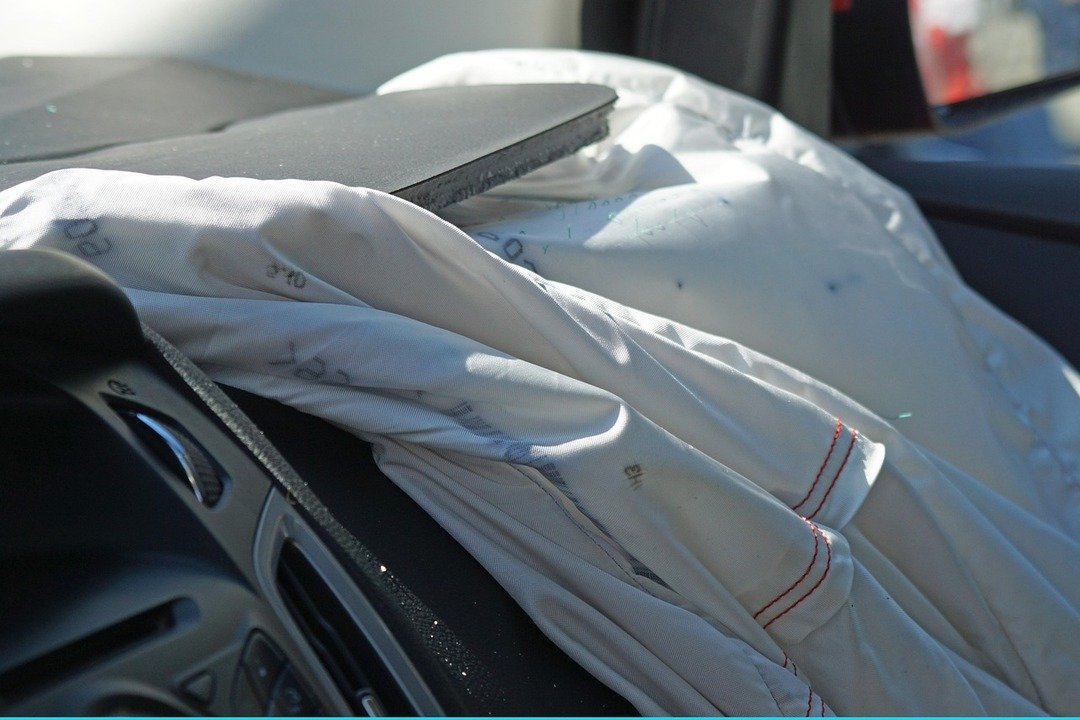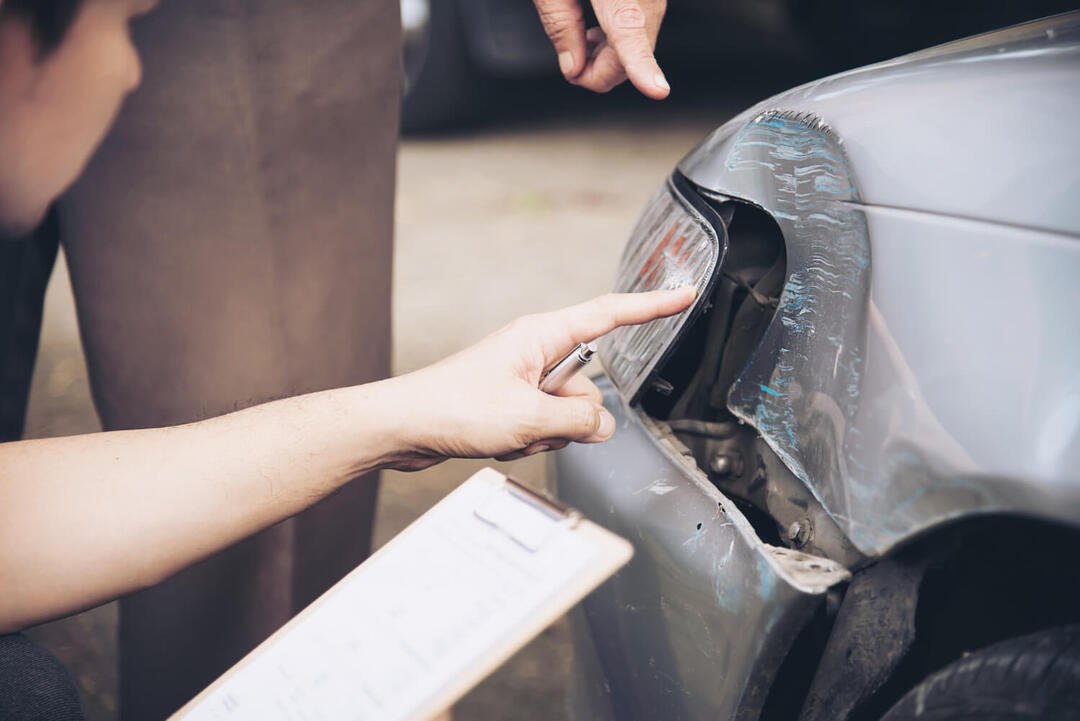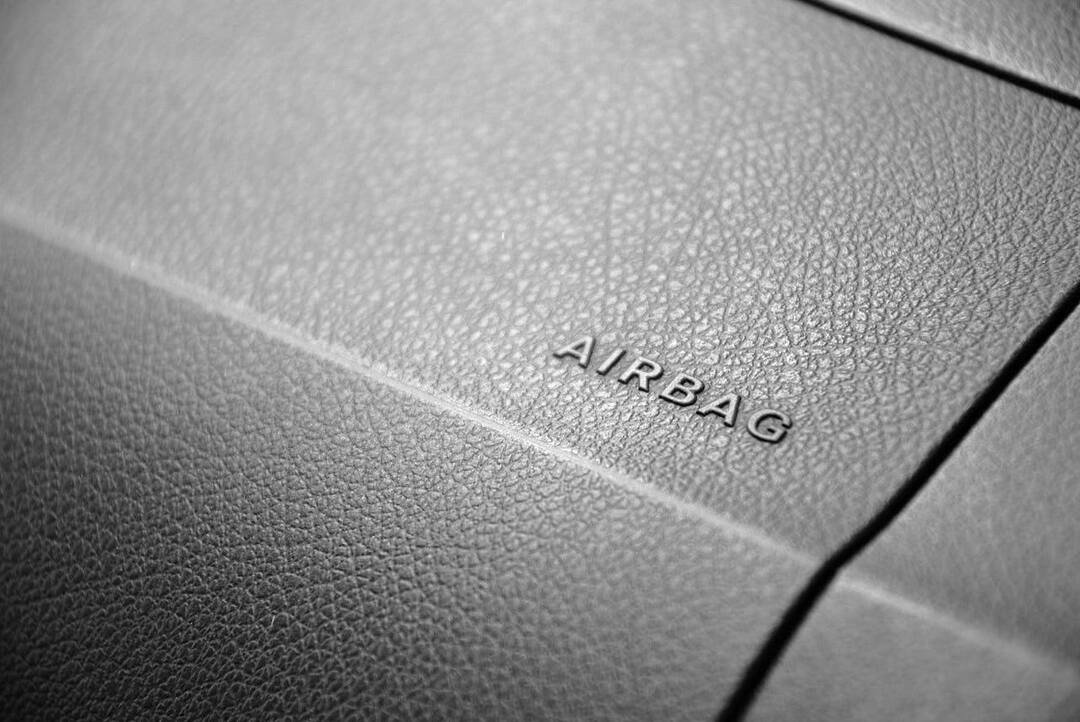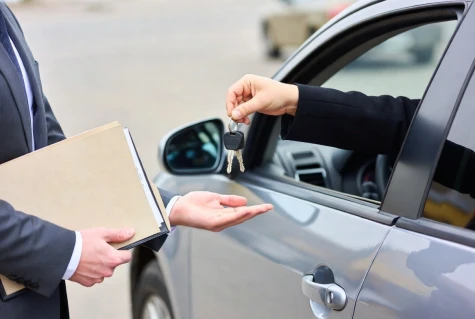Airbags tend to deploy during car accidents. After this, many vehicle owners immediately declare their cars totaled. However, this isn't always the case. Whether your car will be totaled depends on several criteria. These are the car's age, its market value, repair costs, and your insurance company's policies. Grasping what happens after airbags deploy can help you navigate the complicated aftermath of an accident. Be aware of what to do if the vehicle is considered totaled.
Understanding Airbag Deployment
A car's airbags are damaged only in moderate to severe collisions to prevent injuries. However, not every car accident will trigger deployment:
- Frontal collisions at speeds above 8-14 mph typically cause the front car's airbags to deploy.
- Side impacts often trigger side airbags.
- Rollover collisions may deploy curtain airbags that protect occupants' heads.
- A predetermined impact threshold is set by manufacturers.
- Simple physical contact may cause deployment.
Can Airbags Deploy Without an Accident?

Faulty crash sensors, electrical system malfunctions, or even aftermarket modifications might trigger airbags to deploy unexpectedly. Some vehicles have experienced such situations from hitting deep potholes or running over road debris. Document everything immediately and contact your car insurance company.
What If Your Airbags Didn’t Deploy?
Not every car accident will cause a deploy, which is actually by design. If you're wondering why your airbags didn't deploy in a collision, there could be several legitimate reasons for this outcome.
- Low-speed impacts (typically under 8 mph for front airbags) may not generate enough force to trigger deployment.
- Certain impact angles might not activate the specific crash sensors needed for deployment.
- Rear-end collisions typically don't trigger front elements, as they're designed primarily for frontal impacts.
- The vehicle's computer determined that deployment could cause more injuries than it would prevent.
- Pre-existing damage to the system or sensors could prevent proper function during a car accident.
Is Your Car Totaled After Airbag Deployment?
If your car is totaled after an accident (airbags deploy), review the car's actual cash value compared to repair costs. Older cars with lower market value are more likely to be declared a total loss after airbag deployment. Replacing often exceeds 70-80% of the car's value. Newer, higher-value vehicles might be economically repairable even with deployed airbags.
Insurance Claims and Legal Aspects After Airbag Deployment

Airbags deploy in motor vehicle accidents. As a result, your insurance company will assess the total cost of airbag replacement against the vehicle's actual cash value. Most insurance companies use a "total loss threshold." The term describes the cases where the cost of repairs reaches 70-80% of the vehicle's value. This is a reason to declare a vehicle totaled. This percentage of vehicle damage varies by state and insurer. Thus, understanding your insurance policy details is vital.
If you weren't at fault, the at-fault driver's insurance should cover your vehicle repairs. It also covers replacing sessions, medical expenses, and potential personal injury claims. In complex car accidents, especially those with injuries, consulting not only with insurers but also with an attorney who specializes in civil claims might be beneficial.
Selling a Car with Deployed Airbags
Selling a vehicle after airbags deploy presents unique challenges. The accident and airbag deployment can affect both a used and new car's resale value.
- A car with a branded title indicates it was previously declared a total loss.
- Even with proper maintenance, the cost of repairs may be reduced by 20-60% compared to similar vehicles without accident history.
- You must disclose the deployment and subsequent repairs to potential buyers.
- Some buyers specifically avoid vehicles with previous deployment due to concerns about hidden property damage.
- An online OTD calculator on trusted platforms can help highlight a fair asking price for a repaired vehicle with deployed airbags.
Can You Still Trade In a Car with Deployed Airbags?
Trading in a vehicle with used airbags is possible, but expect a significantly reduced trade-in value. Most dealerships will accept these vehicles but offer 30-50% less than their standard trade-in value. If the airbags haven't been replaced and the vehicle isn't in working order, you might only receive scrap value. Some specialized dealerships focus on rebuilt vehicles and may offer better terms. Always be transparent about the vehicle's history, as dealerships will run a VIN decoder check that will reveal the deployment.
Hidden Damage That Airbag Deployment Can Cause
When car airbags deploy during a collision, the visual damage only tells part of the story. The force necessary to trigger deployment often causes hidden structural and mechanical issues that might not be immediately apparent but can affect safety and performance.
- The steering column and dashboard often sustain enough damage that may affect alignment and integrity.
- Electrical systems can be compromised as deployment uses explosive charges that may damage nearby wiring.
- Frame damage might only be detectable with specialized measuring equipment.
- Secondary systems, for example, seat belt pre-tensioners, may be compromised and require replacement.
- Sensors and computer modules controlling critical safety features could be damaged or require recalibration.
How Different Car Brands Handle Airbag Deployment and Repairs

Different manufacturers have varying approaches to airbag replacement after deployment. Some require replacing the entire airbag system, while others allow component-level repairs. European luxury brands typically have the highest replacement costs. U.S. and Japanese manufacturers design more modular systems.
Which Manufacturers Have the Most Airbag Recalls?
Different manufacturers demonstrate distinctive recall outcomes:
- There have been over 67 million airbag recalls from Takata.
- Honda, Toyota, and FCA (Fiat Chrysler) vehicles were among the most affected.
- General Motors has issued several recalls for electronic issues.
- Certain Hyundai and Kia vehicles faced recalls for airbags failing to deploy in crashes.
- Luxury brands, for example, Mercedes-Benz and BMW, have had targeted recalls to adjust new airbag control modules.
Checking for Airbag Deployment in a Vehicle History Report
Always conduct a comprehensive vehicle history report to check for previous deployment. They show accident history, including deployment incidents, insurance claims, and whether the vehicle ever faced a total loss. A VIN decoder can reveal if the vehicle has been rebuilt after being declared a total loss. A previous total loss or improper repairs may be evident.
How to Tell If a Used Car Has Fake or Missing Airbags
Unscrupulous sellers sometimes install counterfeit airbags. They can even leave used airbags unreplaced. Review the following tips:
- Check for uneven seams or mismatched materials on the steering wheel/dashboard airbag covers.
- Look for airbag warning lights and test them.
- Request service records specifically documenting airbag replacement after a known deployment.
- Have a trusted mechanic inspect the car before purchase—they can use diagnostic tools to verify the airbag system.
- Be wary of cars with accident history being sold significantly below the market value of the vehicle.
Preventing Future Airbag Issues
After experiencing deployment or purchasing a vehicle with replaced airbags, proper maintenance is crucial. Ensure any replacement parts are OEM (Original Equipment Manufacturer) or approved alternatives. Have your vehicle's electronic systems regularly checked by qualified technicians. Address airbag warning lights immediately—never ignore these critical indicators. Consider using a vehicle history report service that provides ongoing monitoring for recalls, especially for older cars that might have unaddressed airbag issues.
Summary
Deployment doesn't automatically mean your car is totaled. However, this situation critically increases the likelihood of declaring a car totaled. Insurance companies weigh the cost of replacing specific parts against the vehicle's actual cash value. The goal is to define whether it's a total loss. Newer, more valuable vehicles may be repairable even after multiple airbags deploy. Insurance companies cover airbag replacement costs more loyally to newer cars.
Purchasing a used car should be accompanied by thorough research. Pay attention to its accident history. Avoid cars with unreliably replaced airbags. Prioritize safety over costs when dealing with deployed airbags. Proper replacement is crucial for protecting drivers and passengers.
Frequently Asked Questions
Most modern vehicles are equipped with advanced engines. They automatically shut off when airbags are damaged. This option prevents fuel leaks and potential fires to save drivers and passengers from severe injuries.
Don’t hesitate to sue if your airbags fail to deploy in an accident. Several factors determine the viability of such cases:
- Evidence showing the collision met the threshold requirements for deployment.
- Documentation of personal injuries that airbags would likely have prevented.
- Proof that the airbag system was defective or improperly maintained.
- Whether the vehicle was subject to an unaddressed recall related to the airbag system.
- Expert testimony establishing that the failure to deploy deviated from passenger safety standards.
The risk of your car being considered totaled depends heavily on some crucial aspects. These are, first of all, its age and value. For relatively new vehicles, there's roughly a 60-70% chance of being declared a total loss. The percentage of vehicle damage relative to its cost of repairs is the determining factor. Most insurers adhere to a total loss threshold between 70-80%.
Utilizing salvaged airbags from a junkyard is fraught with several critical safety reasons:
- Airbags are single-use devices that may have severe damage even if they appear intact.
- There's no reliable way to verify the history or condition of used airbag components.
- Improper installation could lead to failure.
- Liability concerns stop reputable repair shops from installing used airbags.
- Salvaged parts may void your insurance coverage or create complications with future claims.
Manufacturers generally suggest airbags will function properly for 10-15 years. After that, environmental factors and component degradation may affect reliability. Some luxury vehicles have an airbag system monitoring that will alert you if maintenance is needed.







